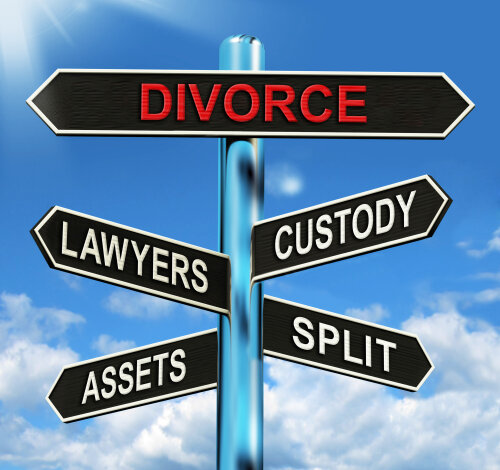Best Cyber Law, Data Privacy and Data Protection Lawyers in Petaling Jaya
Share your needs with us, get contacted by law firms.
Free. Takes 2 min.
List of the best lawyers in Petaling Jaya, Malaysia
Malaysia Cyber Law, Data Privacy and Data Protection Legal Questions answered by Lawyers
Browse our 1 legal question about Cyber Law, Data Privacy and Data Protection in Malaysia and read the lawyer answers, or ask your own questions for free.
- Assalammualaikum, boleh tanya ka? kalau orang tu macam fitnah kita dan menganggu kehidupan , bukan fizikal tapi siber , boleh saman orang tu kah? atau buat report polis
- If you can sue, how much will the fine be?
-
Lawyer answer by OPRICHTER Legal Network
Halo, apakah membuat fitnah atau menganggu kehidupan dengan melakukan posting pada sosial media atau menyebarkan pada setidaknya WhatsApp. Apabila iya bisa dicek pada Pasal 27 ayat (3) jo. Pasal 45 ayat (3) Undang-Undang Nomor 11 Tahun 2008 tentang Informasi dan...
Read full answer
About Cyber Law, Data Privacy, and Data Protection Law in Petaling Jaya, Malaysia:
Cyber Law, Data Privacy, and Data Protection are crucial aspects of the legal system in Petaling Jaya, Malaysia. These laws govern the use of technology, the internet, and the protection of personal data. They aim to safeguard individuals and organizations from cybercrimes, data breaches, and privacy violations.
Why You May Need a Lawyer:
You may need a lawyer specializing in Cyber Law, Data Privacy, and Data Protection if you encounter issues such as data breaches, hacking incidents, privacy violations, online fraud, or any other legal matters related to technology and data. A lawyer can provide legal advice, represent you in court, and help you navigate complex legal procedures in these areas.
Local Laws Overview:
In Petaling Jaya, Malaysia, the Personal Data Protection Act 2010 (PDPA) is a key legislation that governs data privacy and protection. The Act regulates the processing of personal data by individuals and organizations and aims to ensure that personal data is handled in a responsible manner. Additionally, the Computer Crimes Act 1997 addresses cybercrimes such as hacking, online fraud, and data breaches.
Frequently Asked Questions:
1. What is data privacy?
Data privacy refers to the protection of personal information from unauthorized access, use, or disclosure. It involves measures to ensure that individuals have control over their data and that it is handled securely.
2. What should I do if my personal data is compromised in a data breach?
If your personal data is compromised in a data breach, you should report the incident to the relevant authorities, such as the Personal Data Protection Commissioner, and seek legal advice on your rights and options.
3. Can I sue someone for violating my data privacy rights?
Yes, you can take legal action against individuals or organizations that violate your data privacy rights. A lawyer specializing in Cyber Law can help you navigate the legal process and seek compensation for any damages incurred.
4. What are the penalties for breaching data privacy laws in Petaling Jaya, Malaysia?
The penalties for breaching data privacy laws in Malaysia can include fines, imprisonment, or both, depending on the severity of the violation. It is essential to comply with data privacy regulations to avoid legal consequences.
5. How can I protect my personal data online?
To protect your personal data online, you should use strong and unique passwords, enable two-factor authentication, avoid sharing sensitive information publicly, and regularly update your privacy settings on social media and other online platforms.
6. Do I need to comply with data privacy laws if I am a small business owner in Petaling Jaya?
Yes, small business owners in Petaling Jaya are also required to comply with data privacy laws, such as the PDPA. It is essential to handle customer data responsibly and implement security measures to protect sensitive information.
7. What rights do individuals have under the PDPA in Malaysia?
Under the PDPA, individuals have the right to access their personal data, request corrections to inaccurate information, withdraw consent for data processing, and lodge complaints with the Personal Data Protection Commissioner if their data privacy rights are violated.
8. Can employers monitor employees' online activities in Petaling Jaya, Malaysia?
Employers in Malaysia are allowed to monitor employees' online activities to a certain extent, but they must comply with the PDPA and other relevant laws. Employers should inform employees about monitoring practices and respect their privacy rights.
9. How can I ensure compliance with data privacy laws in my organization?
To ensure compliance with data privacy laws in your organization, you should establish data protection policies, conduct regular audits of data processing activities, provide staff training on data privacy best practices, and appoint a Data Protection Officer to oversee compliance efforts.
10. Is it necessary to seek legal advice for data protection matters in Petaling Jaya, Malaysia?
Seeking legal advice for data protection matters is highly recommended, especially in complex cases such as data breaches, privacy violations, or disputes related to data processing. A lawyer with expertise in Cyber Law can provide guidance and legal representation to protect your rights and interests.
Additional Resources:
For more information on Cyber Law, Data Privacy, and Data Protection in Petaling Jaya, Malaysia, you can visit the website of the Personal Data Protection Commissioner (PDPC) or seek assistance from legal organizations such as the Malaysian Bar Council or the Malaysian Institute of Technology and Law (MITL).
Next Steps:
If you require legal assistance in Cyber Law, Data Privacy, or Data Protection in Petaling Jaya, Malaysia, it is advisable to consult with a qualified lawyer specializing in these areas. You can schedule a consultation to discuss your case, explore your legal options, and receive personalized advice on how to protect your rights and interests in matters involving technology and data.
Lawzana helps you find the best lawyers and law firms in Petaling Jaya through a curated and pre-screened list of qualified legal professionals. Our platform offers rankings and detailed profiles of attorneys and law firms, allowing you to compare based on practice areas, including Cyber Law, Data Privacy and Data Protection, experience, and client feedback.
Each profile includes a description of the firm's areas of practice, client reviews, team members and partners, year of establishment, spoken languages, office locations, contact information, social media presence, and any published articles or resources. Most firms on our platform speak English and are experienced in both local and international legal matters.
Get a quote from top-rated law firms in Petaling Jaya, Malaysia — quickly, securely, and without unnecessary hassle.
Disclaimer:
The information provided on this page is for general informational purposes only and does not constitute legal advice. While we strive to ensure the accuracy and relevance of the content, legal information may change over time, and interpretations of the law can vary. You should always consult with a qualified legal professional for advice specific to your situation.
We disclaim all liability for actions taken or not taken based on the content of this page. If you believe any information is incorrect or outdated, please contact us, and we will review and update it where appropriate.









